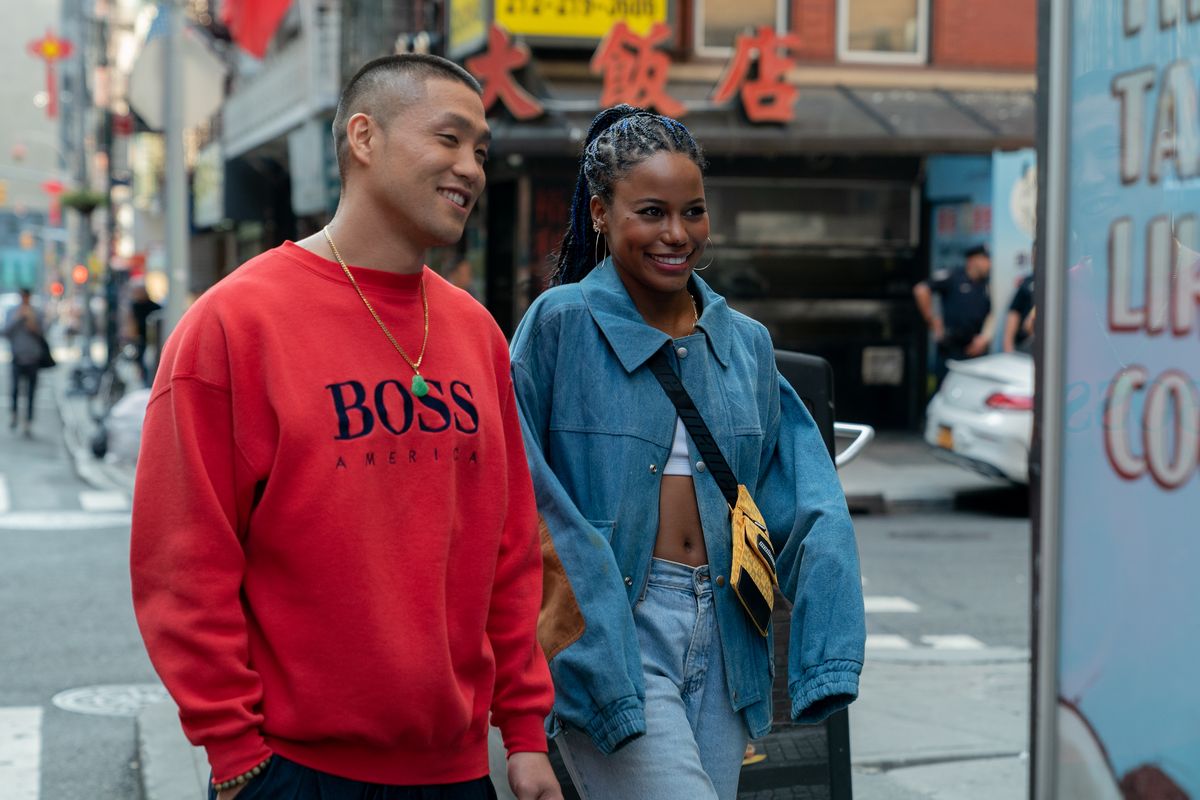Eddie Huang’s directorial debut ‘Boogie’ ultimately a missed shot

Author, TV host, restaurateur, designer, attorney and general Renaissance man Eddie Huang has another title to add to the list: director. The author of the memoir “Fresh off the Boat,” which was adapted into the popular ABC sitcom, makes his feature directorial debut with the coming-of-age basketball drama “Boogie,” starring newcomer Taylor Takahashi in his first film role. While “Boogie” has much of Huang’s urban Asian American style and swagger, the script is, unfortunately, a missed shot.
The story follows the experiences of Alfred “Boogie” Chin (Takahashi), a gifted Chinese American basketball player in Queens who has dreams of the NBA. But for much of the film, it’s difficult to tell if the NBA is Boogie’s dream or the immense expectation of his father (Perry Yung), who is recently released from prison and obsessed with Chinese American sports greatness. It’s not until late in the film when Boogie is asked point-blank that he admits the NBA is his dream, an unconvincing moment at best.
In fact, we don’t know much of what Boogie really wants or desires other than Eleanor (a magnetic Taylour Paige), the alluring girl in his English class at his new school, City Prep, where he’s transferred in hopes of high school basketball greatness manifesting into a college scholarship. When Eleanor, asks him, “what else are you into?” (other than her) Boogie responds, “dominoes,” and his explanation doesn’t tell us much more than that. This thin, surface-level and sometimes abrasive characterization makes Boogie a protagonist that’s difficult to root for, and while Takahashi, in his first film role, is an interesting performer, he doesn’t have the chops or charisma to carry an entire film quite yet.
The character of Boogie is merely a cipher within this formulaic story. The standard sports movie structure has been haphazardly assembled, then filled with rote emotional beats, awkward exposition dumps and slangy, rapid-fire comedic lines that aren’t given enough room to land. Laid on top of that is the Chinese American experience. The cultural touchstones that Huang deploys clearly do come from a place of authentic experience, but most of these representations are utilized without fresh insight or interrogation.
On the bright side of “Boogie,” the cityscapes soundtracked to modern hip-hop are fun and stylish, evoking a sense of place far richer than the characterizations of the people within this environment. The supporting actors are fantastic, especially Paige, who oozes sheer star power (she has a small but memorable role in “Ma Rainey’s Black Bottom” and is soon to be seen starring in “Zola”), but have to do much heavy lifting to make Boogie seem compelling.
Whenever late rapper Bashar “Pop Smoke” Jackson is on screen, as antagonist Monk, his presence is undeniable; his performance is an exciting discovery and a wrenching reminder of his loss (he was murdered in a February 2020 home invasion). It’s difficult not to keep scouting the sidelines for the more interesting characters like Eleanor or Monk or Boogie’s friend Richie (Jorge Lendeborg Jr.) to find someone for a connection.
Even the bright spots remind us that the story issues wouldn’t matter if we knew or cared about our hero more. It’s unfortunate that a film with such a unique character, point of view and premise ultimately ends up feeling lightweight, insignificant and, ultimately, disappointing.